The period of 1968 to 1980 was one of renewal: both the Faculty of Law and the student body underwent significant changes and embarked on new paths. During this time, students studied law pursuant to a new program, engaged in creative ways of making their voices heard, and were taught by an increasingly diverse group of professors. The seminal event that introduced this period was the launch of the National Programme in 1968. The National Programme ushered in an altogether new class of lawyers who were schooled in two legal traditions –the civil and the common law – taught in both French and English. This era was also marked by student activism, where students – often successfully – took to the streets to have their voices heard. One such protest that McGill law students actively engaged in was the Bar protest, where students protested both the high failure rate of the Quebec bar exam and the length of articling. It was also during this period that the Faculty hired its first female professors: Jane Glenn, Ethel Groffier, DCL’72, and Madeleine Cantin-Cumyn. For the first time, women would teach McGill Law students, and students would have female role models in their place of study.
In this period:
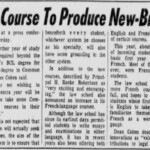
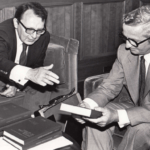



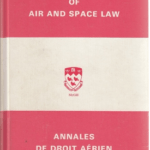

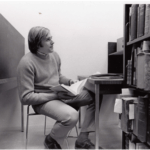
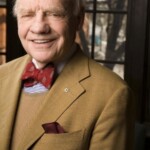
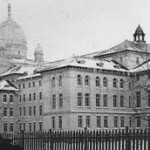
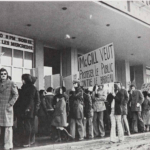
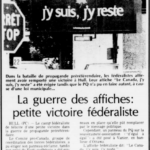

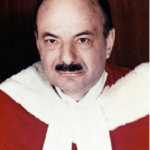
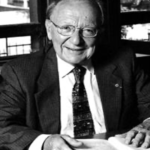
The National Programme 1968-1999

McGill Law’s National Programme was created as a response to many students expressing a desire for mobility in their future careers. McGill had seen an increasing number of anglophone university graduates leaving Quebec in order to gain a common law degree, rather than enrolling in McGill’s English-language civil law program. The National Programme gave students the option to study for an additional year in order to graduate with both civil law and common law degrees. At the same time, more French courses were added to the curriculum, creating a more bilingual environment. Maxwell Cohen, LLD’94, the dean at the time, was instrumental in getting this unique pedagogical change approved and ushering in the first “truly general Canadian lawyer.” Usually, more than 50% of students in a given cohort chose to enroll in the National Programme and graduate with both degrees.
In his article titled “The National Law Programme at McGill: Origins, Establishment, Prospects,” the late Professor Rod Macdonald (pictured above) provided insight into the unique role McGill filled – and continues to fill – in the Canadian legal community. According to Macdonald, the National Programme:
“[H]as always existed, and that is has never existed; always existed in the sense that the curricular and scholarly concerns that led to its formal re-establishment in 1968 have characterized legal education at McGill since at least 1848; and never existed in the sense that the actual curriculum presupposed by the ambitions of the programme, by definition, can never be fully realized, or even described in transcendent terms.”
Establishment of the Civil Code Revision Office
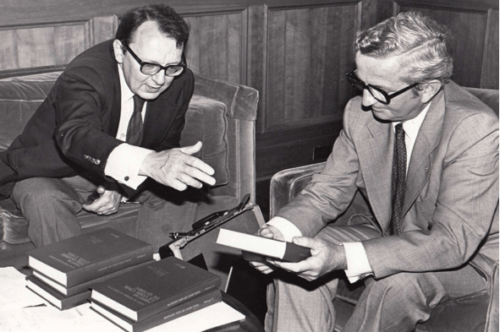
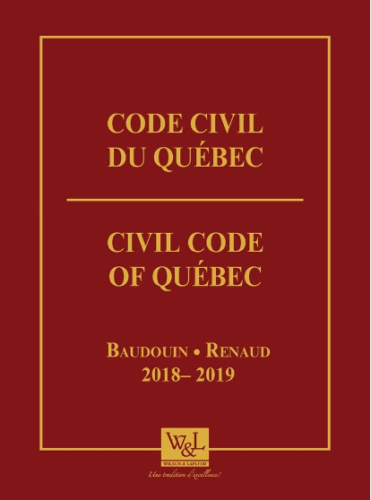
In 1955, the Government of Quebec set out to reform the Civil Code of Lower Canada, which had been in place since 1866. In 1965, Paul-André Crépeau, who was at the time a professor at the Faculty of Law, was chosen to head the Civil Code Revision office. He would oversee the creation of the draft Civil Code until its release in 1977. In an article he wrote about the process, Crépeau described the Office’s goal for the draft code: “Our ambition is to produce a project that will state in as clear and simple language as is possible the basic rules governing the private relations between citizens.” Pictured above is Crépeau and Principal Robert Bell looking over the draft Civil Code.
The final version of the Civil Code of Quebec received royal assent in December 1991. This process was one of the largest recodification processes in any civilian jurisdiction. The Civil Code of Quebec came into effect in 1994. Members of McGill’s Faculty of Law played an instrumental role throughout the revision process. Ethel Groffier, DCL’72, the faculty’s second female professor, along with Madeleine Cantin Cumyn, the faculty’s third female professor, both worked in the Revision Office. Many other faculty members and graduates worked in the Office throughout its nearly two decades of existence, including Gerald Le Dain, BCL’49, LLD’85, Yves Caron, Louis Baudouin, and the Hon. Jean-Louis Baudouin, BCL’58, LLD’07.
John W. Durnford: The Cycling Dean
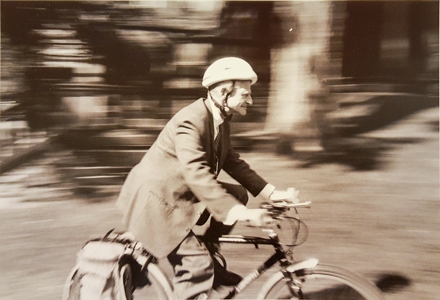
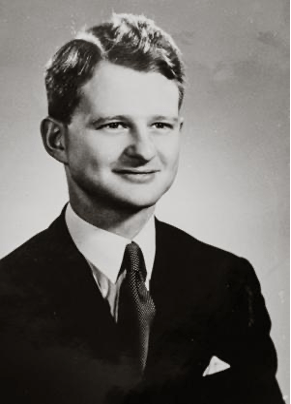
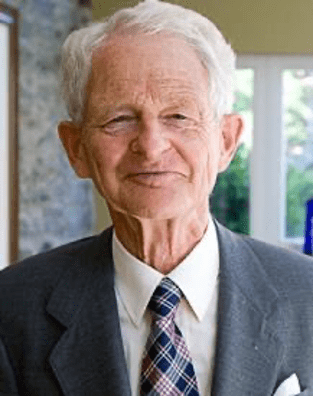
John W. Durnford, BCL’52, loved both Montreal and McGill. He earned his undergraduate degree from McGill in 1949 and continued on to earn his law degree, graduating in 1952. After working as a lawyer for several years, Durnford joined the Faculty of Law as a professor in 1959, before becoming dean in 1969. Durnford left a positive impression on all those he taught and worked with, as well as on the legal community in Quebec. He was an advocate for legal aid, and his success in this respect is remarkable. When Robert Cooper, BCL’69, started a legal clinic that relied on the work of students, the Bar said that students working there would be guilty of illegally practicing law. Durnford was the one to advocate for these students and the clinic, and in 1969 he met with Philip Vineberg, the Bâtonnier of the Montreal Bar, to do so. In response to Vineberg’s threats, Durnford replied: “I guess you will have to arrest them all, and McGill will have to defend them.” Durnford’s act of defiance was successful, and the legal clinic would later serve as a model for the Quebec Legal Aid Act.
The Faculty of Law’s award for teaching excellence was renamed in Durnford’s honour in the late 1990s. After his death in 2017, many of his students and colleagues shared their touching memories about Durnford. Paul Moen, LLB’93, one of Durnford’s students, wrote, “Professor John Durnford not only brought tax law to life, but was an inspiration to all students with his energy, sense of humour and commitment to making McGill Law into an institution of national and international significance.” In addition to his many academic and professional achievements, Durnford was also an avid biker and he could be seen biking to the faculty in his three-piece suit, always wearing a smile.
Pioneering Women Professors
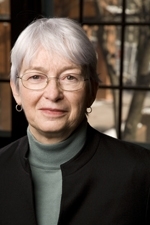
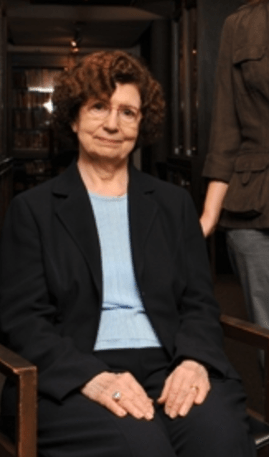
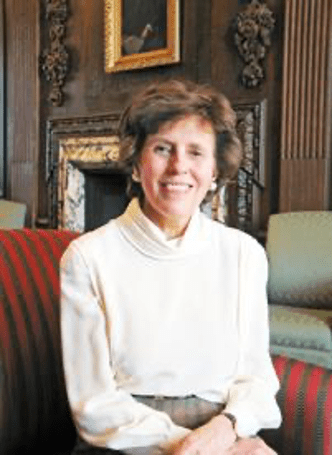
Jane Glenn (left) became the first female professor at McGill’s Faculty of Law in 1971, although the Faculty had previously had female sessional lecturers. Prior to coming to McGill, Glenn had earned her law degree from Queen’s and an LLM from Université de Strasbourg. Throughout her extensive career as a professor, Glenn provided an important role model for female law students. Glenn taught courses in property and international development law, and was also a joint professor in the School of Urban Planning at McGill. Glenn’s husband, H. Patrick Glenn, was also a professor at the Faculty. When asked about the highlights of her time at McGill, Glenn remembered in particular the fun experiences she had performing “Stompin’ on my Heart” at Skit Nite with Professors Roderick Macdonald and Ralph Simmonds, as well acting in the play Trial by Jury.
In 1972, Ethel Groffier (centre) became the second female professor at the Faculty of Law; in 1974, she became the first female professor to teach a full course load. Groffier’s success as a professor was by no means her first big achievement; prior to her start as a professor, she was an important member of the Civil Code Revision Office. She would later revise and publish updated editions of Droit International Privé for the Quebec Bar Association, in collaboration with Gérald Goldstein, LLM’82, DCL’93.
Madeleine Cantin Cumyn (right) joined the Faculty of Law in 1977 as a Wainwright Junior Fellow, becoming a full professor in 1991 and being named as the Wainwright Professor of Civil Law in 2005. She, like Ethel Groffier, also worked in the Civil Code Revision Office prior to the beginning of her professorial career, and continued to work with the Barreau du Quebec on their contributions to the revision of the Civil Code.
Skit Nite: McGill Law Takes the Stage
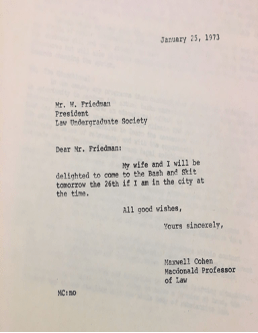

Skit Nite is a beloved tradition of the McGill Faculty of Law, often said to have been going on as long as anyone can remember. The annual event hosted by the Law Students’ Association is an evening of skits, songs, and sometimes videos celebrating and poking fun at every aspect of McGill Law, from transsystemic education to the professors themselves. Originally, Skit Nite took place in the Student Union Building on campus. In the 1990s, the organizers began to rent out Club Soda on Saint-Laurent Boulevard, where it is still hosted today. Skit Nite is not only fun but also a fundraiser; ticket profits are donated to local charities.
The first record of Skit Nite dates back to 1973; Maxwell Cohen sent a letter to the Law Undergraduate Society President stating he would be delighted to come to the “Bash and Skit”. It is possible that Skit Nite was running years before this time; however, no other records have been found.
Skits are not just presented by students; faculty members also get in on the fun. Professors Rosalie Jukier, BCL’83, LLB’83, and Shauna Van Praagh (pictured above) are well known for their annual song and dance, having wowed spectators with their ABBA renditions for many years. Former professor and current Minister of Justice David Lametti, BCL’89, LLB’89, can be seen on YouTube in a number of Skit Nite sketches, including “Speed Dating of Law” with fellow professor, Geneviève Saumier, BCL’91, LLB’91. It is customary for the dean to be involved as well; professor and former dean Daniel Jutras can be found on YouTube performing with his guitar.
Creation of the Annals of Air and Space Law
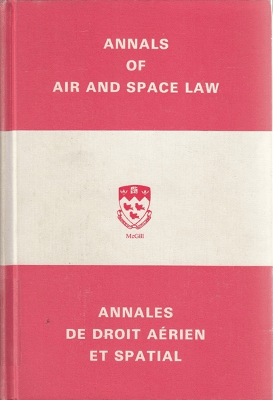
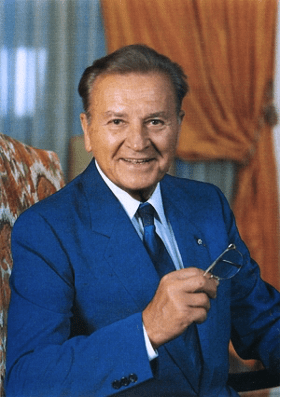
The Annals of Air and Space Law was founded in 1976 by Dr. Nicolas Mateesco Matte. Dr. Matte originally envisioned the Annals to be a forum for the scientific contributions made by the Institute’s alumni and colleagues within the field. Today, the Annals “[…] have become a standard source of reference in the fields of air and space law and will be found in most academic libraries, government and airline offices and specialized law offices.” The Annals continues to play a key role in placing the Institute of Air and Space Law at the forefront of aerospace activities, publishing original articles from worldwide prominent scholars and leading practitioners in both English and French.
Born in Craiova, Romania, in 1913, Dr. Nicolas Mateesco Matte began his long and successful career at McGill’s Institute of Air and Space Law in 1961 as Visiting Professor. Upon being named its director in 1976, Dr. Matte breathed new life into the Institute through the creation of the Annals of Air and Space Law and the Centre for Research in Air & Space Law. In addition to his many achievements in air and space law, such as receiving the International Astronautical Federation’s International Institute of Space Law’s Award in 1978, Dr. Matte was also influential in Quebec society through his work as the ethnic groups’ commissioner in the Commission of Inquiry of the Position of the French Language and Language Rights in Quebec in 1968.
Warren Allmand and the Abolition of the Death Penalty in Canada
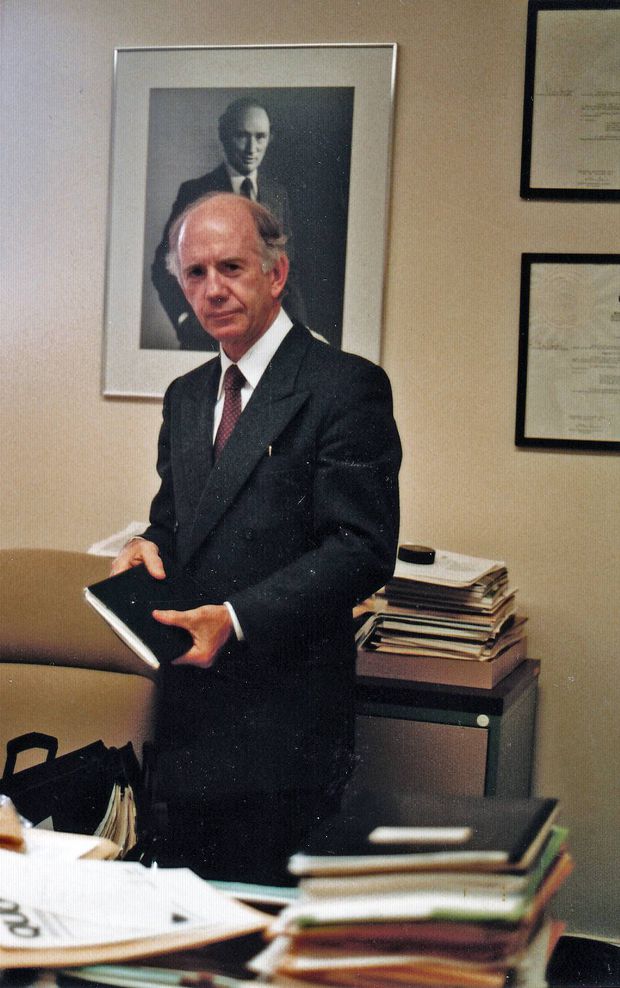
Despite polls suggesting that 70% of Canadians supported the death penalty, in 1976, Solicitor General Warren Allmand, BCL’57, tabled Bill C-84, An Act to Amend the Criminal Code in Relation to the Punishment for Murder and Certain Other Serious Offences that same year. Narrowly passing in a 131 to 124 vote, with a third of caucus voting against it, Bill C-84 removed the death penalty from the Criminal Code and abolished its use in Canada. In a speech to Amnesty International a year after the Bill’s passing, Allmand remarked, “Capital punishment, simply because it is immoral and useless, must be fought and defeated if we are to become a world society in which our descendants can live in peace and justice.”
Ken Dryden: McGill Law on Ice
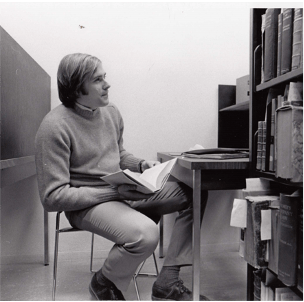
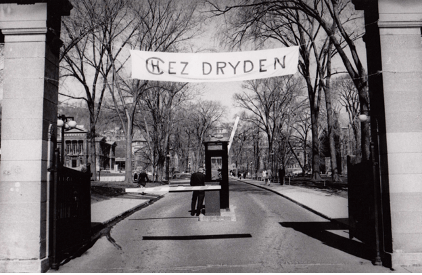
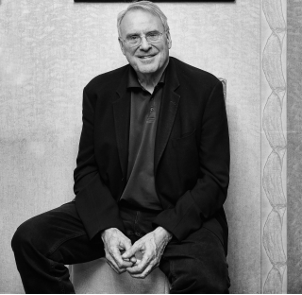
The Hon. Ken Dryden, PC, OC, LLB’73, presented a unique challenge to the McGill Faculty of Law: how could they accommodate a student who was busy playing in the Stanley Cup Final at the same time as exams? A solution was found, however, as Dryden not only helped the Montreal Canadiens win the Stanley Cup in 1971, but proceeded to graduate with his LLB two years later as well. After the Montreal Canadiens won the Stanley Cup, Robert E. Bell, then the Principal of McGill University, and, John Durnford, BCL’52, then the Dean of the Faculty of Law, released the “Resolution on Ken Dryden” which stated “McGill, the birthplace of hockey, records its pleasure and pride in the contribution of Ken Dryden, LL.B. ‘73, to the success of the Montreal Canadiens in winning the Stanley Cup.” The photo above (centre) shows McGill displaying its support and pride for Dryden in 1971 at the Roddick Gates on Sherbrooke Street.
While Dryden would go on to help the Canadiens win a total of six Stanley Cup championships, his success did not end with hockey. He went on to become a politician and was elected as a Member of Parliament for the Liberal Party of Canada, and served as Canada’s Minister of Social Development during from 2004 to 2006. He also taught at McGill, teaching the course “Thinking the Future to Make the Future” and published The Game, a best-selling book about hockey. Dryden’s achievements did not go unnoticed by McGill or Canada. In 2013, Dryden was named an Officer of the Order of Canada, and in 2018, the University awarded Dryden an honorary doctorate.
McGill Law’s Presence in Quebec Politics
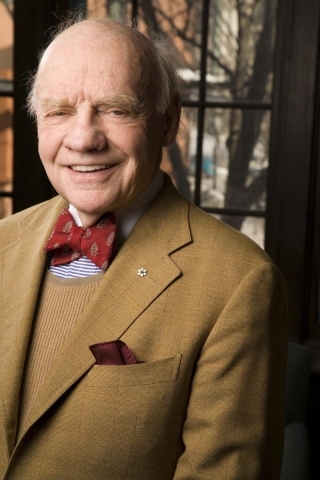
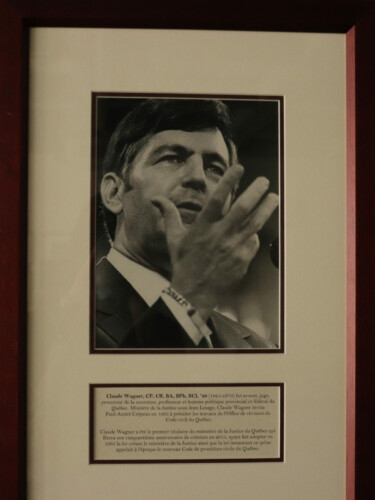
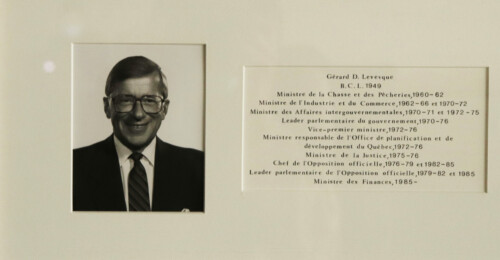
Professor William Tetley, CM, QC, a professor at the Faculty of Law from 1976 until his retirement in 1998, served as City Councillor in the Town of Mount Royal from 1965 to 1968, and then became the representative for Notre-Dame-de-Grâce in the Quebec National Assembly from 1968 to 1976. During his time at the National Assembly, Tetley served as the Minister of Financial Institutions and wrote Quebec’s first Consumer Protection Act. He was a cabinet member during the October Crisis and went on to publish The October Crisis, 1970: An Insider’s View in 2008. In 1995, Tetley was named to the Order of Canada.
Claude Wagner, PC, QC, BCL’49, was a judge, Quebec politician, and federal politician. After being named a Sessions Court judge in 1963, Wagner was elected to the Quebec government in 1964. He served as Quebec’s first Minister of Justice from 1964 to 1966. After losing an election in 1970, Wagner returned to the bench for a two-year period before being elected to the federal government in 1972. Wagner finished his career in politics as a federal senator, serving from 1978 until his death in 1979. Claude is the father of Richard Wagner, the current Chief Justice of the Supreme Court of Canada.
Gérard D. Levesque, BCL’49, is a McGill Law graduate who went on to have an extensive career in Quebec politics, representing the Bonaventure riding for 37 years. He served as the Minster of Justice from 1975 until 1976, when the Robert Bourassa government was ousted. He then took on the role of Leader of the Opposition. Levesque acted in several cabinet positions and was the Minister of Finance at the time of his death in 1993.
McGill Law Accepts First Crop of CÉGEP Students
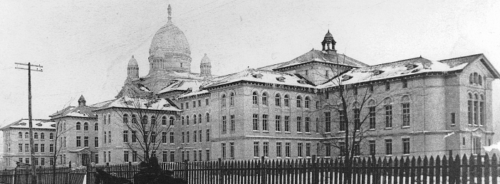
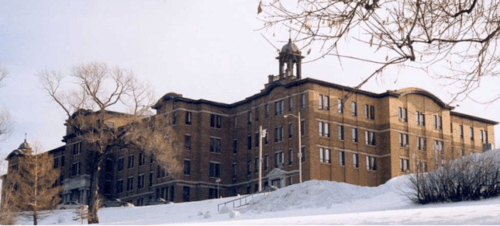
In 1967, the first CÉGEPs (Collège d’enseignement général et professionnel) opened in Quebec amidst the Quiet Revolution. Unique to the province of Quebec, CÉGEPs are the first stage of higher education; they offer two to three years of vocational and pre-university programs. There was much debate over whether or not to admit CÉGEP students directly to McGill Law, as law students were usually required to complete an undergraduate degree prior to starting their legal studies. Some professors felt that CÉGEP students would not have the “educational maturity” necessary for law school. Furthermore, the Ontario Bar Association did not want to admit students who had not completed a bachelor’s degree. However, McGill professors also knew if they were the only law school in Quebec not to admit CÉGEP students, they would lose out on some of the province’s top candidates. In 1971, McGill Law accepted its first CÉGEP students. Pictured here is Dawson College, the first English-language CÉGEP, which opened its doors in 1969.
Today, CÉGEP students routinely make up almost a quarter of the incoming McGill Law class. They graduate with the same degree as their peers, and are eligible to pass the bar anywhere in Canada. Pictured above is the CÉGEP de Chicoutimi, one of the first CÉGEPs to open in 1967. Originally a seminary, it was transformed into a college amidst the Quiet Revolution.
Student Activism
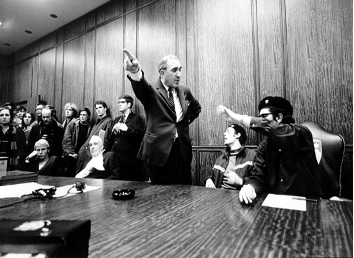
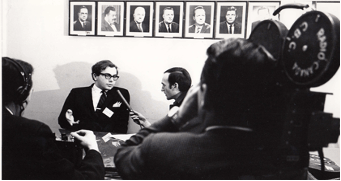
In 1974, McGill Law students boycotted the Quebec bar exam over the high failure rates and the increased articling period: it was being increased to one year but they wanted it to remain six months. Their voices were heard on the issue of the articling period – it was reinstated to only six months.
There were also protests in 1969 by students who, amidst the Quiet Revolution, wanted McGill to be a French institution (this movement was known as “McGill Français”). In March of 1969, 10,000 people – a mix of CEGEP students, university students, activists, and workers – clamored around the Roddick Gates of McGill University, chanting “McGill Français”. A number of administrative meetings at the school were also interrupted around this period. At the time, Maxwell Cohen was both dean of the Faculty of Law and a member of the McGill Board of Governors. He can be seen here confronting a protestor who had interrupted a Board of Governors meeting.
Julius Grey, BCL’71, was a law student and the president of the McGill Student Society at the time of “McGill Français” and spoke out against the protests. Grey went on to become a professor at McGill’s Faculty of Law in 1977, and continued to teach until 2002. Julius Grey has pleaded before the Supreme Court the second most times of any lawyer in Canada, with over 50 appearances. In 2004, Grey received the Médaille du Barreau, the highest distinction given by the Barreau du Québec.
McGill Law’s Response to the 1980 Quebec Referendum
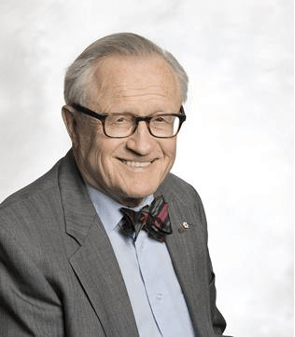

The 1980 Quebec Referendum generated many famous slogans. “J’y suis, j’y reste” was first made famous by French General Patrice de Mac-Mahon during the Crimean War when he was advised to retreat. In 1980, it was McGill Law’s F.R. Scott who brought the slogan to Quebec. Former Commissioner of Official Languages Graham Fraser recounted at a lecture that “at a meeting in Sherbrooke, a young man said that he cared nothing about the French-speaking minorities outside Quebec, that the only minority that mattered was the English-speaking minority in Quebec, and it should leave as soon as possible. ‘J’y suis, j’y reste’ (I’m here, I’m staying) quipped Scott…that phrase became a No-Campaign slogan in the referendum of 1980.”
In 1976, Alex Paterson, BCL’56, LLD’94, helped found the Positive Action Committee (PAC) a month after the election of the Parti Québécois. The PAC was instrumental in advocating for non-French speaking Quebecois language rights and campaigning for the No Committee in the years leading up to and during the 1980 referendum. During the 1980 Referendum, Thomas Mulcair, BCL’76, LLB’77, who would go on to become Leader of the Official Opposition in Ottawa for the New Democratic Party, worked as a lawyer for the Quebec Ministry of Justice. Reminiscing on the work environment at that time, Mulcair remarked, “I remember one guy, another lawyer, sitting me down to have lunch and literally haranguing me for the whole time, just saying, ‘How can you possibly vote against Quebec?’ And I’d say, ‘Well, I’m not voting against something, I’m voting to keep something, which is our attachment to Canada.’”
The Legal Information Clinic Established at McGill
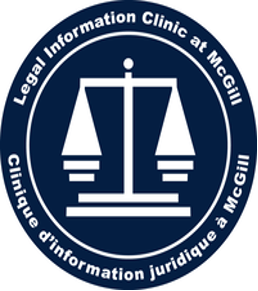
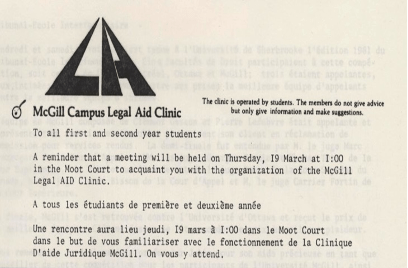

Now known as the Legal Information Clinic at McGill, the Legal Aid Clinic opened in 1973. The student initiative was led by Michael Bergman BCL’76, LLB’76, who wanted to increase access to justice for McGill students and community members needing legal help. Bergman explains that, when he was a student, there were few opportunities at McGill Law for students to have practical experience in the legal field. Bergman had a vision, and he recruited no less than 40 students to volunteer at his clinic. The student volunteers worked two-hour shifts in their isolated office the fourth floor of the Student Union Building. The next year, Bergman was able to move the clinic to a small office in the basement.
In 2013, the clinic celebrated its fortieth anniversary. Michael Bergman spoke at the commemorative conference. “Over the years,” Bergman commented, “I began to notice that my colleagues were telling me they had been volunteers at the Clinic. Professors began to tell me that. Law deans began to tell me that. Judges began to tell me that. Business leaders began to tell me that. Politicians began to tell me that. The experience at this Clinic was transformational for many.” Today, the Legal Information Clinic has six full-time directors and over one-hundred student volunteers. It is still, to this day, the only entirely student-run legal clinic in Canada. The clinic serves over two thousand clients a year. Bergman has noted that “the clinic is a gem. And there is every reason to believe that the clinic will continue for a great many years to come, indefinitely.”
McGill Law at the SCC: Louis-Philippe de Grandpré
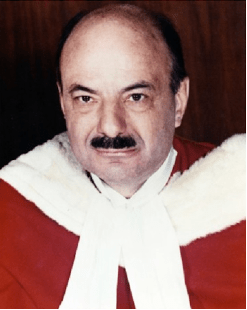

Justice Louis-Philippe de Grandpré, BCL’38, was named to the Supreme Court of Canada in 1974 by former Prime Minister Pierre Trudeau. Before serving on the Supreme Court, Justice Grandpré acted in several other notable roles; first as the bâtonnier of Montreal, then as the bâtonnier of the province of Quebec, and finally as the national president of the Canadian Bar Association. He also lectured occasionally at McGill’s Faculty of Law in the early 1960s. de Grandpré’s career spanned an impressive 70 years, and was distinguished by many honours. Justice de Grandpré was struck by syringomyelia in his late 20s, a rare and terrifying disorder that left most of his right side paralyzed. Although de Grandpré was told by many doctors he had only five years to live, he lived until the age of 90.
McGill Law’s Influence on the Quebec Charter
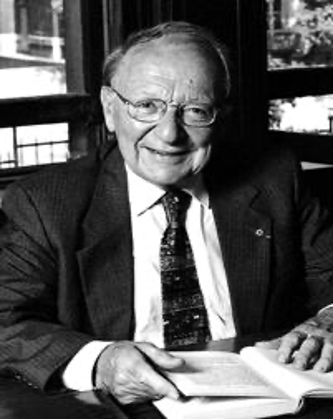
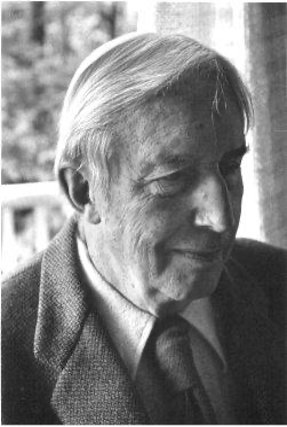
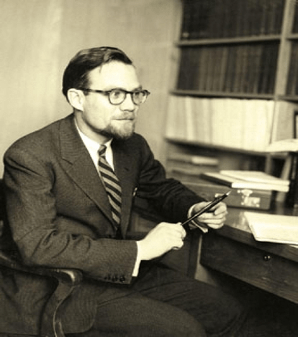
Four years before the adoption of Quebec’s Charter of Human Rights and Freedoms in 1975, Professors Frank R. Scott, BCL’27, LLD’67, and Paul-André Crépeau submitted their seminal work, a Report on a Draft Bill concerning Human Rights and Freedoms/Rapport sur un projet de loi concernant les droits et libertés de la personne, to the National Assembly of Quebec. Playing a far greater role than simply inspiring the National Assembly’s formulation of the Charter, the Scott-Crépeau report is considered the precursor to the Charter, as most of the recommendations in the report were incorporated in the Charter’s final version.
Playing an equally important role in the Quebec Charter’s formulation, Jacques-Yvan Morin, BCL’52, published an article in the McGill Law Journal in 1963 entitled “Une charte des droits de l’homme pour le Québec”. He was the first person to propose the adoption of a Quebec charter of rights.
